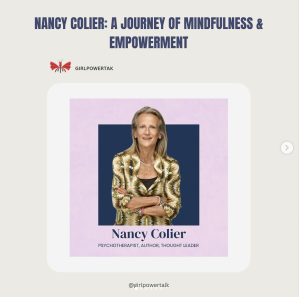My 10-year-old was invited to a party this weekend, a camp reunion sleepover, given by one of her closest friends. Unfortunately, this same weekend, she has an event that she can’t and doesn’t want to miss, a competition for which she has trained diligently and for many months. The other little girl is very angry with my daughter and has accused her of being a bad friend and bad person because she won’t give up her event in order to attend the party. She wanted to know why my daughter was doing this to her and purposely spoiling her event.
While it is age-appropriate maybe for 10-year-olds to feel and behave this way, many “grown ups” behave in a similar fashion, which is not age appropriate. I was recently at a party with a friend. Knowing that I had to get up early for something important the next day, I left the gathering by midnight. My friend, a woman in her 40s, was furious that I could do that to her. She was having a good time, had met a man she was interested in, and didn’t want to stay there on her own. She felt that my leaving was unkind, and that I should have stayed longer as a form of support for her. In another example, some years ago, after sitting for a whole day with an ill friend, I decided to go for a drive, to spend some time with myself, which I desperately needed. To this day, my friend tells me that I left her in her time of need, and wasn’t willing to stay with her unconditionally. The fact that I also needed some self-care was and still is experienced as abandonment and an aggression against her. The 10 hours spent with her that day, as far as her internal world is concerned, never existed.
It is very difficult for some people to see anything as happening separate from and not in relation to them. People who suffer with this view of the world experience everything as a reflection and commentary on who they are, an abandonment or affirmation of themselves. Whatever it is you do, even those things that have nothing whatsoever to do with them, somehow, are either for or against them. Such people simply can’t see anything as not being tethered to them. Sometimes it can be quite baffling to even figure out how your action could possibly be related to them, for or against, but through this kind of lens, everything you do is indeed about them, even when it makes absolutely no logical sense. This form of narcissism is in fact quite prevalent in our culture, and very challenging to know how to handle in close relationships.
A painful aspect of being in relationship with this kind of person is that since nothing can be about you and your life, you end up feeling not seen and not known, invisible, except as an object that they use to make themselves feel better or worse. The experience is that you don’t really exist at all, and simultaneously, that you are continually invalidated, not permitted to be a separate being who might actually have her own experience. Why you might make a particular choice, for yourself, is viewed not only as untrue and absurd, but yet another aggression — against them — that you could dare to think that you have your own internal world, and separate life. Imagine! How could your choices possibly be about you when you don’t really exist?
It is nearly impossible to feel truly cared for when the other is not interested in knowing you in any way other than how you make them feel — about them. You might feel liked when your behavior is interpreted as favorable to their self-worth, but this is not the same thing as feeling genuine friendship or love. In relationship with this kind of narcissism, it can feel like your life and very self are kidnapped — dis-allowed by the other. In truth, your very existence separate from them, is the ultimate betrayal, and what they seek to obliterate. Related to as an object that needs to be either controlled or obliterated, love is a difficult and unlikely endeavor. As a result of all this, such relationships are fraught with profound loneliness, grief and raging frustration as you fight desperately to be visible and known for who you — genuinely — are.
Some time ago, I gave a memorial for a close family member. As I was shopping for cookies for the gathering, I reached for the vanillas because my kids enjoy them. Immediately, my mind shot back with the thought that I was choosing vanilla to punish this relative, the one who had died, since she would have chosen chocolate. I waved hello to my old thought tape and bought the vanillas.
Perhaps the most dangerous aspect of a relationship with this kind of narcissist is that you come to experience your own life as actually being about the other. You lose touch with your own intentions, as if their narcissistic lens, pointed at you, gradually corrupts even your knowing your own truth, and simultaneously, steals the dignity that comes with that knowing. You not only start changing your behavior, morphing yourself into a deformed system, refraining from doing things that (while not about them) they will experience as about them, but also, you stop believing in your own experience and intention. The fact that your actions are for and about you, not them, stops being completely clear. You begin to doubt what is really true for you, as you are no longer quite connected to your own truth. In this way, their narcissism acts as a toxin to your connection to self. You may defend that what you are doing is about you and not them, but some part of you stops believing this fully, and the strength behind this knowing is lost. While you may go on fighting to be seen accurately and truthfully, the other has taken away your ability to own and believe this accurate and truthful version of yourself. Your truth (being true) comes to depend on their believing it — being able to prove it to them. Even the struggle for you, they eventually own.
Most important in this sort of relationship is to stay in touch with your own intentions. Rather than defending yourself, proving your own truth (as if you should have to), be that separate entity that they refuse to acknowledge. A simple, “I am sorry that you are experiencing what is about me — to be about you,” can suffice. Chances are you are not going to get this other person to see you clearly, without an umbilical cord between you. Let the attempt to be seen accurately go, if at all possible. The more you try to be known, the more you threaten your own connection to self. We all have the right to be the keepers of our truth and no one has the right to determine or corrupt our intentions, to turn our being into an extension of them. With each moment that you are misunderstood and your truth distorted, spend two moments confirming and marinating in what is so for you, your actual truth, uncorrupted. And think too, carefully, about whether you want to be in a relationship with someone who doesn’t want to or have the capacity to genuinely know you, as a being unto yourself. Ask yourself if this kind of relationship strengthens your sense of dignity and self-worth, encourages your authentic nature, makes you feel known, understood, loved, or just plain good about yourself. If the answer is no, then what is the best choice for YOU, the choice that is in line with your wellbeing? Sometimes the only way to honor your separateness is to make the choice to separate.


